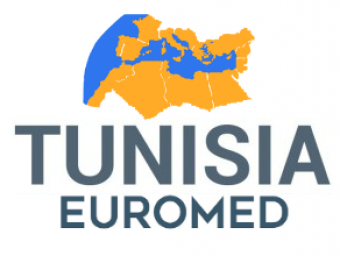The Middle East and North Africa will not be immune from the shockwaves of Russia’s war in Ukraine and the ensuing sanctions imposed on Moscow by the West.

The rapid evolution of the conflict, with its military, economic and humanitarian manifestations, has caught the world by surprise. It was even more so in Arab countries, which were fundamentally ill-prepared to deal with any contingencies challenging their own precarious balance.
In many regards, if no remedial and preventive actions are taken, the Ukraine conflict could very much exacerbate the region’s already volatile and complicated situation.
This is especially the case in the economic field.
Many of the MENA countries had been already struggling to curtail the financial fallout of the pandemic now find themselves dealing with a new and unprecedented economic crisis.
The prospect of sharp hikes in energy and wheat prices as well as the possible disruption of food supplies will, in various degrees, affect countries in the region. For the more vulnerable of the MENA countries, the situation could even lead to a new wave of social unrest reminiscent of the violent uprisings that shook the Arab world during the last decade.
Food security in the region is also at risk. Economically-challenged countries in MENA, such as Syria, Tunisia, Lebanon and Yemen, are exposed to the adverse impact of food and grain price hikes and shortages. But the poorer segments of all the region’s populations stand to lose even more than others.
Most Arab countries are major importers of food staples. Egypt is the world largest wheat importer with 80% of its supplies coming from Russia and Ukraine. Lebanon imports 60% of its wheat from Ukraine. Tunisia was already witnessing food price rises and supply disruption even before the start of war. The country imports 50% of its wheat from Russia and Ukraine.
The other obvious economic implication of the war for the MENA region is its impact on the energy market. Oil and gas producing countries, such as Algeria, Libya and the Arab Gulf states, are likely to benefit from the surge of energy prices as they will most probably be called upon to step in the vacuum left by Russia after EU and US sanctions. Countries such as Saudi Arabia, the UAE, or even Libya, do have the capacity to pump more oil. They are likely, however, to maintain a delicate geostrategic balance when determining their policy on oil and gas prices and output.
A number of other Arab countries including Tunisia, Lebanon and Morocco, are net energy importers. They will need to find ways to assume the burden of financing unexpected heavy fuel bills in the future. Energy price hikes will push up inflation rates and potentially ratchet up social tensions.
Politically, changes are likely to affect the wider picture of relations with Europe and the US. The region, already coping with Washington’s geostrategic disengagement, may need to prepare for a diminishing European interest in Euro-Med partnerships, as European attention turns to consolidating strategic alliances within the continent itself. This new focus is likely to mean greater military and economic expenditures will be allocated to help with reconstruction in Eastern Europe. Fewer resources are therefore likely to be available for regional development projects and North-South integration.
This shift could also mean that the attention Europeans give their neighbours south of the Mediterranean will be self-servingly limited to combating illegal immigration and terrorism. The drive for reform, political or economic, will be put on the back-burner. Countries amid democratic transitions could be left to grapple with their own turbulent processes as their regional partners are busy with other priorities elsewhere.
But the West’s need for more oil and gas output is also likely to give Middle East and North African exporters more leverage and relieve them from European and US pressures for reform.
It is quite difficult to imagine a scenario in which the war in Ukraine will not adversely affect international efforts to resolve conflicts in the region. The war in Ukraine is surely going to increase instability of the MENA region rather than advance the agenda for peace.
A war in the heart of Europe risks relegating MENA conflicts to the back-burner. Multilateral institutions, especially the UN Security Council, already deeply divided on how to solve regional conflicts, particularly in Libya, Syria and Yemen, could find themselves unable to contribute to conflict settlement. Wars in Libya, Syria and Yemen could be left to local and sub-regional protagonists to handle.
Russia’s role in the region is also likely to change. Instability in the Middle East will be bigger problem for Europe than it is for Russia. With the exception of Syria and Iran, where Moscow has vested strategic interests, Russia could play the role of spoiler rather than an active peace builder, especially if it feels its vital interests to be in jeopardy. Moscow’s most recent obstructive move during the Iran deal
talks offers an indication of what to expect from a Russia under Western siege.
The rapidly deteriorating relations between Russia and the West will have their own impact on multilateral efforts to deal with various ongoing conflicts across the region. It will certainly widen the chasm within the UN Security Council, making it difficult if not impossible to reach any consensus among the P5 on possible settlement of crises in the MENA region.
It may be too soon to fully assess the real impact of the war on Arab-West relations and Euro-Med cooperation in particular. But there might be reason for hope. The current situation could offer an opportunity for leaders from the two shores of the Mediterranean, once a truce is in effect, to reflect together on the shortcomings of the past process and to explore new ways of cooperation in renewable energy, green economy and near sourcing.
For Arab countries, it is time to reassess and recalibrate all past calculations so as to adjust to unfolding changes. Pan-Arab regional institutions should be keener on closer cooperation amidst the current crisis. Having failed to coordinate their efforts to meet the challenge of the pandemic, they may not have now the luxury of ignoring the disastrous impact of the Ukraine war on their food security and their own stability at home.
